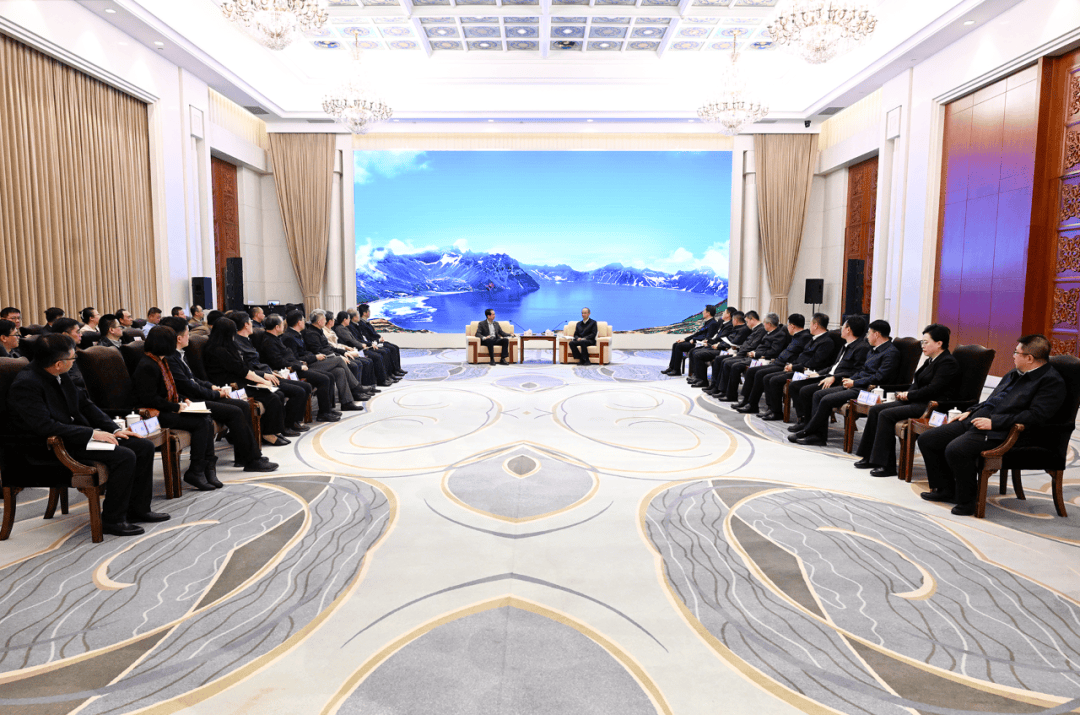Huang Qiang Meets Delegation from Training Program for Ambassadors and Counselors of Ministry of Foreign Affairs
On October 24, Huang Qiang, Secretary of the Provincial Party Committee, met with a delegation from the Training Program for Ambassadors and Counselors of the Ministry of Foreign Affairs in Changchun.

Huang Qiang extended a warm welcome to the delegation for their inspection tour in Jilin. After briefing the delegation on Jilin's economic and social development, he noted that as a key border province in China, Jilin is well-positioned to promote high-level opening-up.
With the successful conclusion of the Fourth Plenary Session of the 20th Central Committee of the Communist Party of China, the province is intensifying efforts to study and implement the spirit of the plenary session. It is also revisiting, aligning with, and carrying out the General Secretary Xi Jinping’s important directives on Jilin’s work. By fully, accurately, and comprehensively implementing the new development philosophy, Jilin aims to better serve and integrate into the new development paradigm, further enhance its economic openness, and strive to promote all-round revitalization and high-quality development. Huang Qiang expressed hope that embassies, consulates, and diplomats abroad would strongly support Jilin in deepening foreign exchanges and cooperation, actively promote and showcase Jilin's advantages in traditional industries, agricultural modernization, its location as a border province, ecological resources, red tourism, as well as science, education, and humanities, and present a truthful, objective, vibrant, and positive image of the province.
On behalf of the delegation, He Wei, Chinese Ambassador to Vietnam, stated that they would thoroughly study and implement the spirit of the Fourth Plenary Session of the 20th Central Committee, actively serve the overall development of the country, support Jilin in expanding high-level opening-up and achieving high-quality development, and contribute to the all-round revitalization of Northeast China and the advancement of Chinese modernization.
Source: Jilin Release Editor: Liu Jiadi



